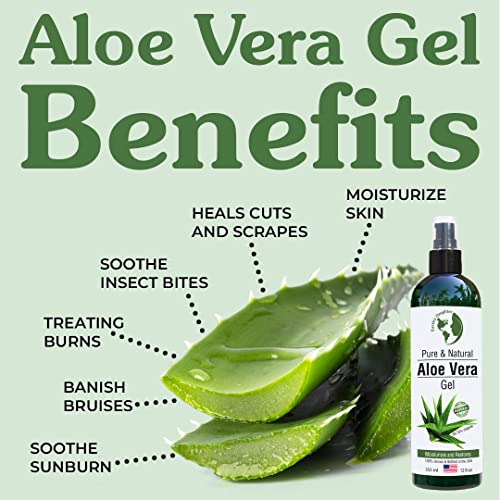The History of Aloe Vera;
Aloe Vera, botanically known as Aloe barbadensis miller, belongs to the Asphodelaceae of the Liliaceae family. The “Aloe” was derived from the Arabic word “Alloeh,” which means “shining bitter substance,” and Vera means “True” in Latin. It is known as the “plant of Immortality” by the Egyptians. Aloe Vera has been widely known for centuries as a plant with many health benefits.
Over 2000 years ago, scientists, greeks, in particular, referred to the plant as Universal (panacea) as it is used in dermatology for numerous purposes. Apart from the dermatology aspect, it has also been used for medicinal purposes for centuries in countries like China, Japan, Greece, Mexico, and China. It was also discovered that the Great Queens of Egypt, Queen Cleopatra, and Nefertiti often used Aloes to boost their beauty.
This also includes the likes of Christopher Columbus and Alexandra the Great in the treatment of soldier’s wounds. Aloe vera was first referred to and translated to in English by Goodyew John in A.D. 1655 (Dioscoriedes’ medical treatise). By the 1800s, Aloes were used in the U.S. as laxatives and as a treatment for severe radiation dermatitis in the 1930s as well.
It is researched throughout the Middle East, the Indian Ocean, and Africa, and the result reported over 500 species of the Aloe plant.
What are the benefits of Aloes?
As a medicinal plant containing antibacterial and antioxidant properties, its health benefits are immeasurably numerous in various ways, which include preventing Wrinkles, managing blood sugar, reducing dental plaque, and accelerating wound healing.
1. Aloes contain antioxidant properties;
Aloe vera gel is a very powerful source of antioxidants and antibacterials belonging to the polyphenols family, which is very important for health.
Alongside several other compounds, polyphenols help inhibit the replication or growth of some infections or bacteria in the human body.
Very known for its Antiseptic, antiviral, and antibacterial properties, Aloe veras are quite useful in the treatment of wound, as it accelerates the healing process and is a great remedy for skin problems, too.
2. Aloes contain very helpful plant compounds beneficial to health;
Due to its high importance and beneficial value to human health, Aloe vera is estimated in the annual market at a value of about $13 billion globally. The pharmaceutical, food, and cosmetic industries use the plant extensively as the water-filled tissue called “gel” can be used for products.
Its leaves contain a very slimy tissue that retains water; this water or gel contains compounds in plants like amino acids, vitamins, antioxidants, and minerals, and beneficial bioactive compounds that are essential for health and help treat skin injuries.
3. Aloe vera helps in reducing dental plaques:
Gum problems and tooth decay are very common diseases related to human health. However, this condition can be prevented if there is a reduction in bacterial biofilms and a buildup of plagues on the teeth.
Aloe vera gel is very effective as it kills completely candida albicans, a yeast commonly found in the mouth. After several weeks of use, Aloe vera contains natural chemicals that, if used as mouthwash or mouth rinse, will help in reducing salivary streptococcus mutans (Bacterium-producing plague), gingivitis, and plague, making it equivalent to chlorhexidine (a mouthwash ingredient).
4. Aloe vera helps in reducing Constipation
ALoes may be very helpful in the treatment of Constipation. The sticky yellow residue under the skin of the leaf, called “latex,” not the gel, provides this benefit.
The compound “Aloin” or “barbaloin” is the key compound responsible for the laxative effects. Although people have been partially concerned with the safety of using aloe latex frequently, aloe latex availability has been limited, particularly in the USA, since 2002.
On the contrary, the plant is very active or effective in the treatment of digestive conditions such as inflammatory bowel disease, irritable bowel syndrome, and other digestive conditions.
5. Aloe vera helps boost hair growth;
A research study indicated aloe vera is very effective in the treatment of scaliness, itchiness, and seborrheic dermatitis (a condition that causes a crusty, reddish rash with yellow-white scales, usually on the scalp or face).
Although seborrheic dermatitis may lead to temporary hair loss, aloe vera would significantly help in promoting hair growth.
6. Aloes Help regulate blood sugar levels;
Aloe vera sometimes are used as a remedy for diabetes patients. This is because aloes enhance the production of insulin sensitivity, thereby improving the blood sugar management in the body.
Although scientists do not currently recommend Aloes as an ideal option, there’s moderate evidence of favorable effects in patients with type 2 or prediabetes patients.
7. Aloes Help prevent Wrinkles;
Aloe vera has been researched to improve skin and prevent wrinkles. Some evidence from topical aloes suggests the aloe vera gel inhibits or slows down the aging of the skin.
Providing the skin with increased collagen production, it helps the skin retain its elasticity and moisture (Especially in people with dry skin conditions)over an 80-90-day period.
8. Aloe vera helps in treating canker sores;
At some point in your life, you might have experienced canker sores or mouth ulcers. Sometimes, it could sprout inside the mouth or underneath the lip, at least, for about a week.
Know for its shorter healing time, aloe vera accelerates and aids the treatment of mouth ulcers. The slimy gel in aloes has also been confirmed to accelerate the pains associated with mouth ulcers and heal them completely.
Get more health tips here at 5starloaded-Tips
Do you find 5starloaded useful? Click here to give us five stars rating!

Haircuts
2 weeks ago
Thank you for every other wonderful article. The place else may just anyone get that kind of info in such an ideal means of writing? I have a presentation subsequent week, and I’m on the look for such info.